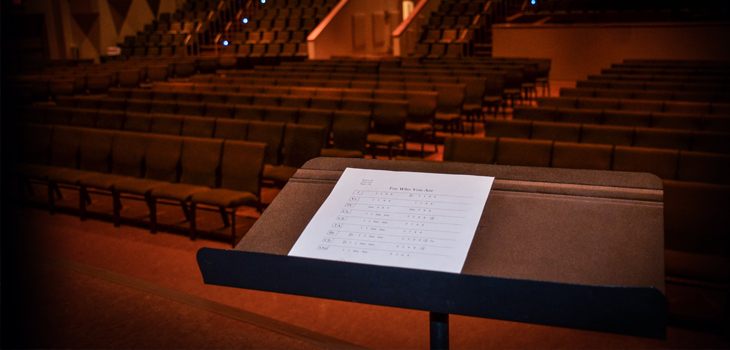get started. get better.

I remember sitting in a Nashville studio helping a friend track his record. We were working with a 9-time Dove Award winning producer who asked me if I could read Nashville Numbers. My immediate thought was: "uh-oh." I had heard about numbers but never really learned what it meant to read them.
The other Nashville session players, of course, knew them inside and out. I, however, was just fortunate to have played the songs enough, where I could make it through the songs without the help of the charts.
As soon as I got home I did some serious homework on Nashville Numbers. Fast forward about 10 years, and now I can't imagine charting a song or even listening to a song without them!
Before you worry about how numbers work, let me first try to convince you that it's worth learning. There's a reason session players use this method rather than the charts you may be used to. In fact these pro studio cats use this system over the "standard notation" system you learned in piano lessons as a kid.
These musicians have to knock out 10 songs they've never heard in a limited number of precious studio hours, and this is what they use every time they record. It works, and here are 5 reasons why:
1. Once you know the numbers, you can transpose into any key without re-charting Every song is made up of a progression of 7 different notes, which you can find in the major scale. The number system simply identifies which chord is which number, from one to seven. So, G, C, D in the key of G is 1, 4, 5. Now, take those numbers and apply them to the key of D, and you’ll get: D, G, A. Musicians who know numbers well can apply the numbers to any key. So, you can change the key all you want, and you’ll only ever need one chart.
2. You can fit the exact roadmap of a song within one single page (and you don't even need the lyrics!)
This is the beauty of this type of chart. Standard notation usually takes several pages to chart a song, because every note is spelled out. The NN system is chord based and doesn’t depend on lyrics to show when a chord is to be played.
For these reasons, you can fit most songs on one piece of paper easily and the musicians have all the info they need to play songs they’ve never heard perfectly from start to finish.
3. Even if you "capo-up" you don't have to re-chart!
This is kind of related to reason number one, but it’s a little more specific. When you capo up to use a different chord family, you are still playing in the same key; however, you are using different chord shapes. This might be a little confusing at first, but bear with me.
For instance, a G capo 5 is actually a C, even though it looks like a G. So, my friend plays a C chord, and I play a G capo 5, and they both sound good together. The beauty with numbers is that they are both 1 chords.
In the key of C, the C is the 1, so my friend plays a C. If I’m capoed-up, I’ll be referring to the G chord family. So, my one chord is a G chord. So, even though we are using different chord shapes, we are both playing a 1 chord and can share a chart.
4. When you start "thinking numbers" you will unleash the secrets of why songs feel the way they do.
Each chord sounds a certain way, no matter the key. Most songs, for instance resolve with a last big chord, which is the 1 chord. Each chord in a chord family has a unique feel and sound.
Once you get used to numbers, you’ll see patterns emerge that you never knew were there. In fact your song writing will even benefit. You'll be able to quickly find that perfect chord for your song.
5. You'll save hours of practice time.
Yes. Hours. This system spells out every repeat, every tag, every double chorus, every instrumental. So, your practice time with others is less about "what do we do here?" and is more about fine-tuning parts and song transitions.
Especially if you do the work ahead of time on your chart, you won't need to communicate much to your band about the actual flow of the song. You can spend your time experimenting with things in the song.
Still not convinced? I was pleasantly surprised when I attended a Passion Conference band rehearsal a few years ago. The members of Chris Tomlin's band were warming-up with "Salvation is Here."
Guessed what they used to communicate the chord changes? That's right -- Nashville Numbers. I've even seen articles from Hillsong United about using numbers to refer to the chords as well.
This system may have started in Nashville, but it is exploding beyond TN. When you have volunteers playing new sets of songs every single week, you will save hours of practice time by using a system that works this well.
Learning numbers is a worthwhile investment for any worship leader. We'll talk more about that soon!